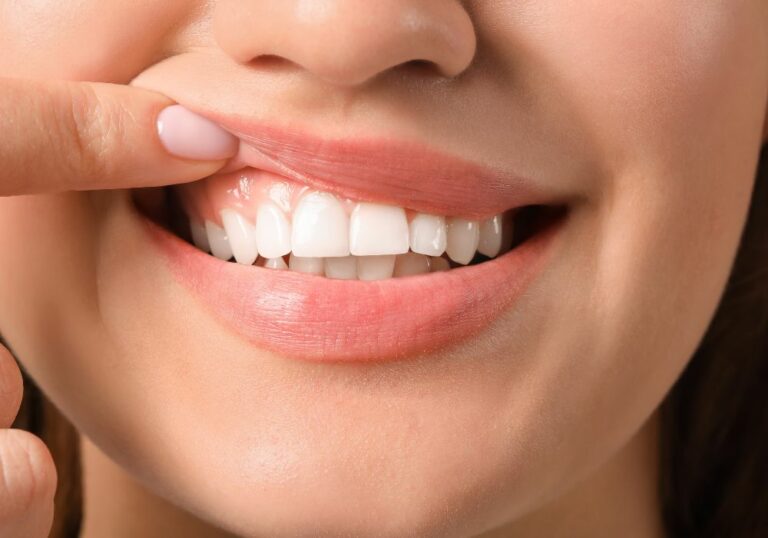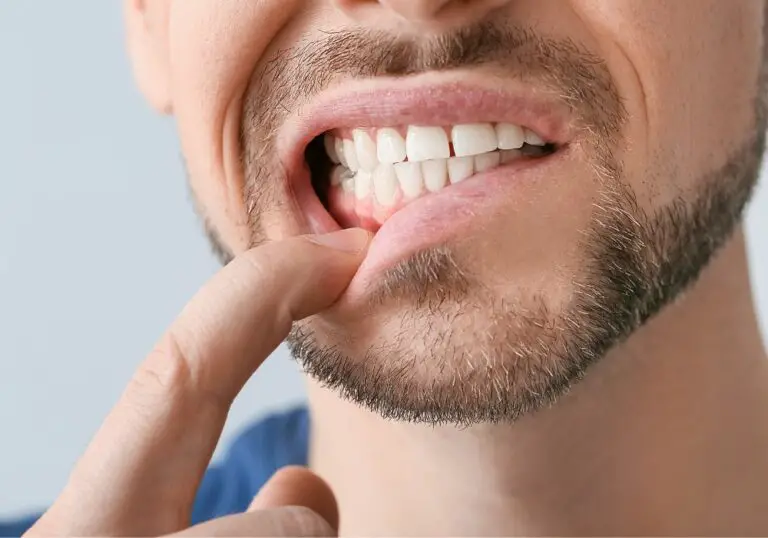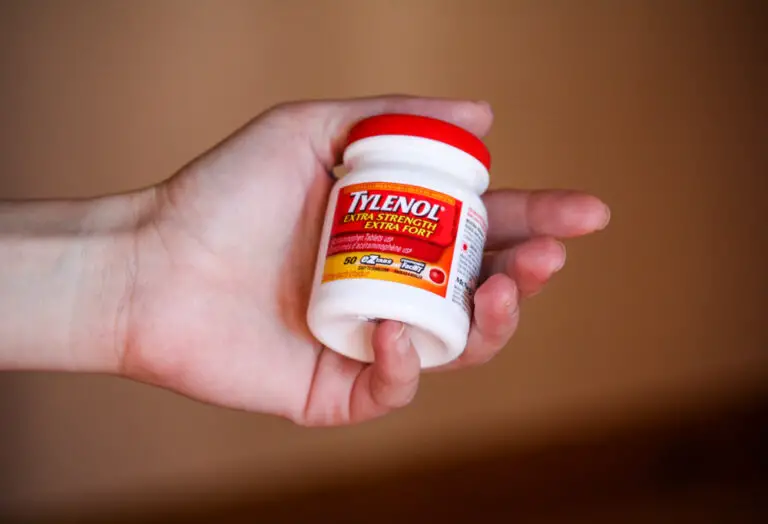If you’ve noticed a hole in your tooth, you may be wondering if it’s possible for the hole to heal itself. While some minor damage to teeth can repair itself, a hole in a tooth is a sign of tooth decay and requires professional treatment. Tooth decay occurs when bacteria and acid break down the tooth’s enamel, leading to a cavity.
Ignoring a cavity can lead to further damage and potentially painful tooth infections. It’s important to see a dentist as soon as possible if you suspect you have a cavity. A dentist can diagnose the extent of the damage and recommend the appropriate treatment. Treatment options may include a filling, crown, or root canal, depending on the severity of the decay.
Understanding Tooth Decay
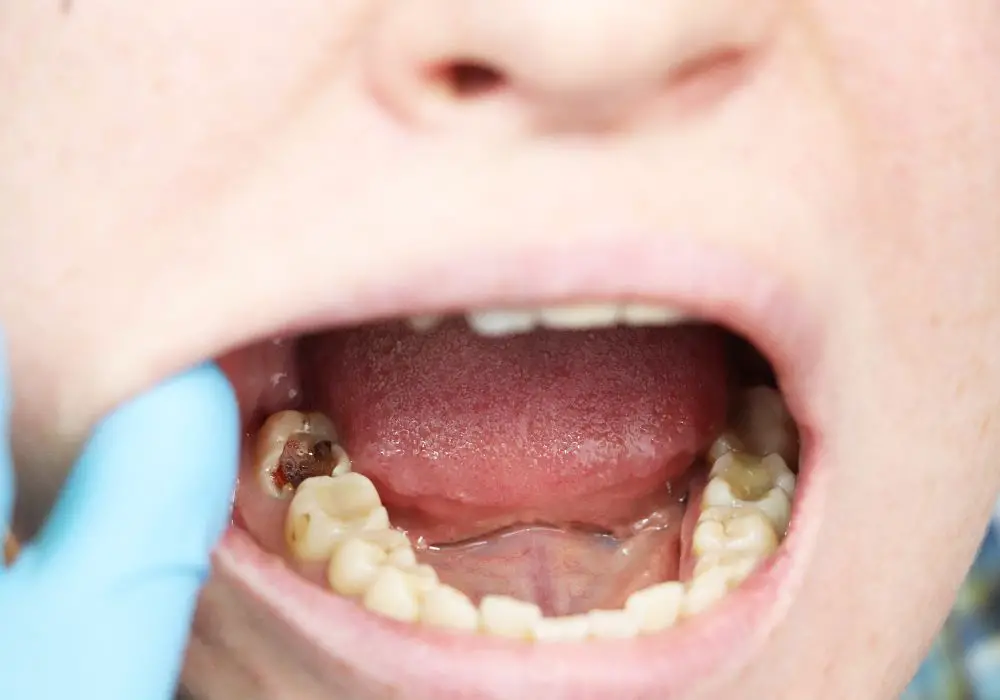
Tooth decay is a common dental problem that occurs when bacteria in your mouth produce acid that erodes the hard outer layer of your teeth, called enamel. If left untreated, tooth decay can lead to cavities, infections, and even tooth loss.
Causes of Tooth Decay
Several factors can contribute to tooth decay, including poor oral hygiene, a diet high in sugar and starches, and a lack of fluoride. When you consume sugary or starchy foods, the bacteria in your mouth produce acid that can attack your tooth enamel. Over time, this acid can cause a cavity to form.
Poor oral hygiene can also contribute to tooth decay. If you don’t brush and floss regularly, plaque can build up on your teeth, providing a breeding ground for bacteria. Without proper oral hygiene, the acid produced by these bacteria can erode your tooth enamel, leading to decay.
A lack of fluoride can also increase your risk of tooth decay. Fluoride helps to strengthen your tooth enamel, making it more resistant to acid erosion. If your drinking water doesn’t contain enough fluoride, or if you don’t use fluoride toothpaste, your teeth may be more susceptible to decay.
Stages of Tooth Decay
Tooth decay typically progresses through five stages, each with its own set of symptoms and treatment options. These stages include:
- White spot: In the early stages of tooth decay, you may notice a white spot on your tooth. This is a sign that the enamel is starting to break down. At this stage, tooth decay can often be reversed with good oral hygiene and fluoride treatments.
- Enamel decay: As tooth decay progresses, the enamel may start to break down, causing small holes or pits to form in your teeth. At this stage, your dentist may recommend a filling to prevent further damage.
- Dentin decay: If tooth decay continues to progress, it can reach the dentin layer of your tooth. This can cause sensitivity, pain, and even infection. Treatment options at this stage may include a filling or a root canal.
- Pulp decay: If tooth decay reaches the pulp of your tooth, it can cause severe pain and infection. At this stage, a root canal may be necessary to save the tooth.
- Abscess: In the most advanced stage of tooth decay, an abscess may form at the root of your tooth. This can cause severe pain, swelling, and even fever. Treatment may involve a root canal or tooth extraction.
By understanding the causes and stages of tooth decay, you can take steps to prevent and treat this common dental problem. With good oral hygiene, a healthy diet, and regular visits to your dentist, you can keep your teeth healthy and strong for years to come.
The Body’s Natural Healing Process
When it comes to healing cavities, your body has a natural process that can help. While it may not be able to completely heal large cavities, it can reverse early stages of tooth decay and prevent further damage.
Remineralization
One way your body naturally heals cavities is through remineralization. This process involves minerals like calcium, phosphate, and fluoride being deposited back into the tooth enamel. When you consume foods and drinks that contain these minerals, they can be absorbed into the enamel and help repair any small areas of damage.
To promote remineralization, you can try incorporating more foods and drinks that are rich in these minerals into your diet. Some examples include:
- Dairy products like milk, cheese, and yogurt
- Leafy greens like kale and spinach
- Nuts and seeds like almonds and sesame seeds
- Fish like salmon and sardines
Role of Saliva
Another way your body naturally heals cavities is through the role of saliva. Saliva contains enzymes that help neutralize the acids produced by bacteria in your mouth. It also contains minerals that can help remineralize your teeth.
To promote saliva production, you can try:
- Chewing sugar-free gum
- Drinking plenty of water
- Eating foods that require a lot of chewing, like crunchy fruits and vegetables
It’s important to note that while your body’s natural healing process can help reverse early stages of tooth decay, it’s not a substitute for proper dental care. Regular brushing, flossing, and dental check-ups are still essential for maintaining good oral health.
Limitations of Natural Healing
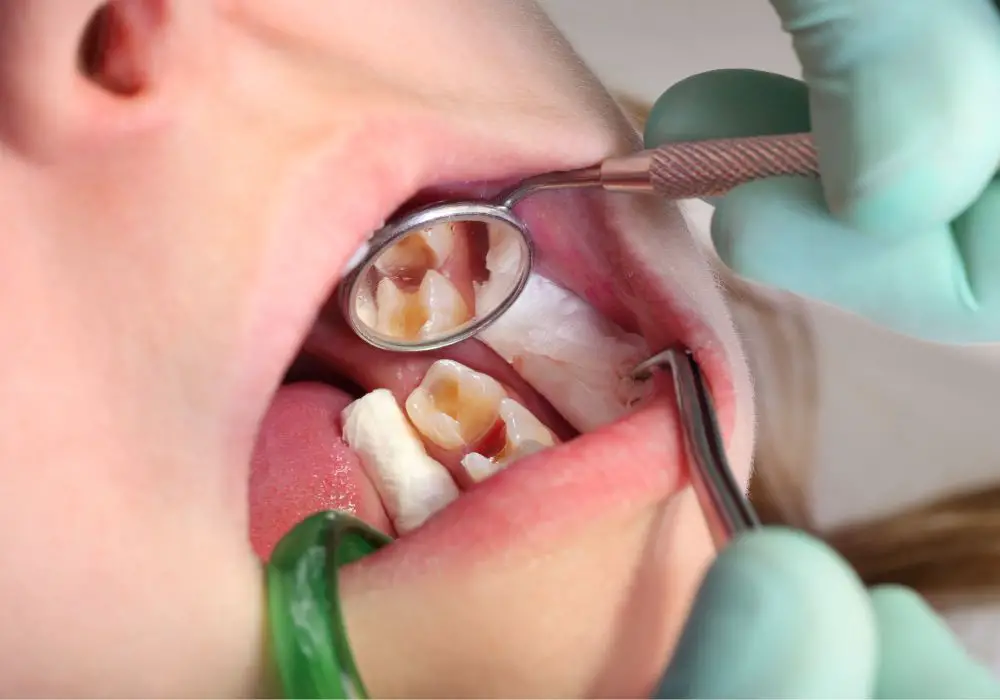
While natural healing can help prevent cavities and promote healthy teeth, it’s important to understand that there are limitations to what it can do. Here are a few things to keep in mind:
1. Natural healing can’t cure advanced cavities
If a cavity has progressed to the point where it has caused significant damage to the tooth structure, natural healing may not be enough to reverse the damage. In these cases, it’s important to see a dentist who can evaluate the extent of the damage and provide appropriate treatment, which may include a filling, crown, or other restorative procedure.
2. Natural healing isn’t a substitute for good oral hygiene
While natural healing can help promote healthy teeth, it’s not a substitute for good oral hygiene practices like brushing and flossing. Neglecting your oral hygiene can lead to the buildup of plaque and bacteria, which can eventually lead to cavities and other dental problems.
3. Natural healing may not be effective for everyone
Everyone’s teeth are different, and what works for one person may not work for another. While natural remedies like oil pulling and herbal mouthwashes can be effective for some people, they may not be effective for everyone. It’s important to experiment with different natural remedies to find what works best for you.
4. Natural healing takes time
Natural healing is a gradual process, and it may take time to see results. If you’re trying to heal a cavity naturally, it’s important to be patient and consistent with your efforts. It may take several weeks or even months to see significant improvement.
In summary, while natural healing can be a useful tool for promoting healthy teeth and preventing cavities, it’s important to understand its limitations. If you have a cavity or other dental problem, it’s important to see a dentist for appropriate treatment. And remember, good oral hygiene practices are key to maintaining healthy teeth and preventing cavities.
Preventive Measures
Proper Oral Hygiene
Maintaining good oral hygiene is the most effective way to prevent cavities and holes in your teeth. Here are some ways to keep your teeth healthy:
- Brush your teeth at least twice a day with fluoride toothpaste. Make sure to brush all surfaces of your teeth, including the back molars and tongue.
- Floss daily to remove food particles and plaque from between your teeth.
- Use mouthwash to kill bacteria and freshen your breath.
- Replace your toothbrush every three to four months or sooner if the bristles become frayed.
- Visit your dentist regularly for check-ups and cleanings.
Diet and Nutrition
Your diet can also play a role in preventing holes in your teeth. Here are some tips for maintaining a healthy diet:
- Limit sugary and acidic foods and drinks, such as candy, soda, and fruit juice. These can erode your tooth enamel and lead to cavities.
- Eat a balanced diet that includes plenty of fruits and vegetables, lean protein, and whole grains. These foods provide essential nutrients that help keep your teeth and gums healthy.
- Drink plenty of water throughout the day to keep your mouth hydrated and rinse away food particles and bacteria.
By following these preventive measures, you can reduce your risk of developing cavities and holes in your teeth. Remember to take care of your teeth every day to maintain good oral health.
Dental Treatments for Holes in Teeth
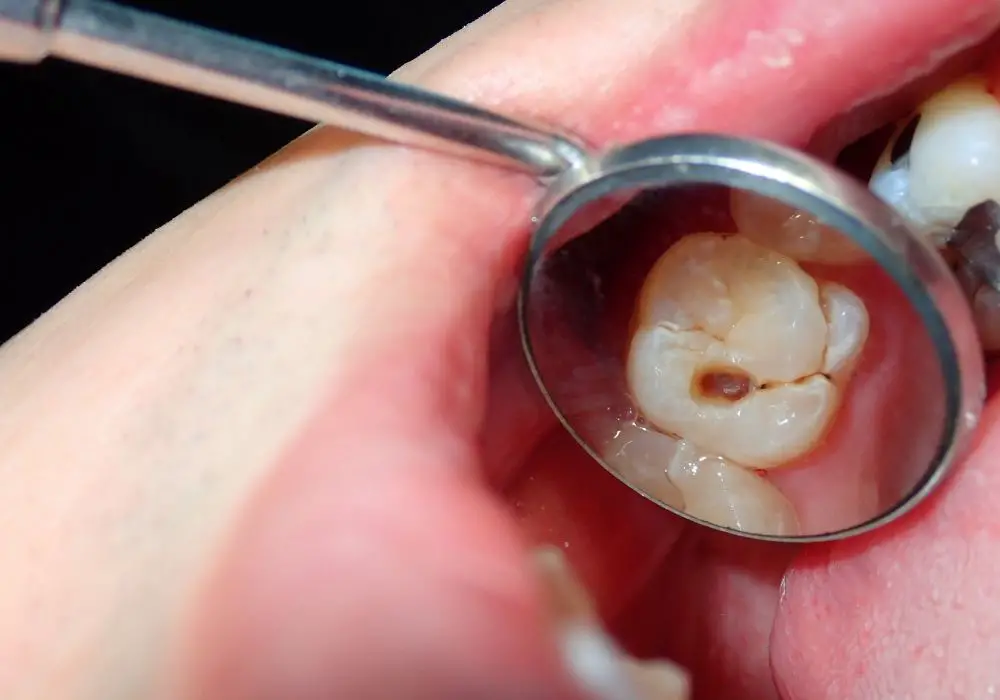
If you have a hole in your tooth, it is important to see a dentist as soon as possible. Holes in teeth, also known as cavities, are caused by tooth decay and can lead to pain, infection, and even tooth loss if left untreated. Fortunately, there are several dental treatments available to fix holes in teeth.
Fillings
One of the most common dental treatments for holes in teeth is a filling. During a filling procedure, the dentist will remove the decayed portion of the tooth and fill the hole with a material such as composite resin, amalgam, or gold. Fillings can be completed in a single visit to the dentist and are generally a quick and painless procedure.
Root Canal Therapy
If the hole in your tooth has reached the pulp, or the innermost part of the tooth that contains nerves and blood vessels, you may need a root canal. During a root canal procedure, the dentist will remove the decayed portion of the tooth as well as the infected pulp. The tooth is then filled with a material to prevent further infection and a crown is often placed on top to protect the tooth. Root canal therapy may require multiple visits to the dentist and can be more invasive than a filling, but it is often necessary to save a damaged tooth.
Overall, dental treatments for holes in teeth are effective and can help prevent further damage to your teeth. It is important to see a dentist regularly and practice good oral hygiene to prevent cavities from forming in the first place.
Frequently Asked Questions
How can I prevent cavities from getting worse?
To prevent cavities from getting worse, it is important to maintain good oral hygiene habits. Brush your teeth at least twice a day with fluoride toothpaste and floss daily. Limit sugary and acidic foods and drinks, and try to eat a balanced, healthy diet. Regular dental check-ups and cleanings can also help prevent cavities from getting worse.
Can a cavity heal without treatment?
Unfortunately, a cavity cannot heal without treatment. Once a cavity has formed, it will continue to grow and cause damage to the tooth until it is treated by a dentist. However, early-stage cavities can be reversed with proper oral hygiene and fluoride treatments.
What are the early signs of tooth decay?
The early signs of tooth decay include sensitivity to hot and cold temperatures, pain when biting down, and visible pits or holes in the teeth. You may also notice white or brown spots on the teeth, which can be a sign of early-stage decay.
What does a cavity look like?
A cavity can look like a dark spot or hole on the tooth, but it can also be difficult to see with the naked eye. Your dentist can use special tools to detect cavities and determine the extent of the damage.
How can I naturally heal a deep cavity?
While it is not possible to heal a deep cavity without professional dental treatment, you can take steps to promote oral health and prevent cavities from forming in the first place. Eating a healthy diet, brushing and flossing regularly, and using fluoride toothpaste and mouthwash can all help keep your teeth healthy.
How long can a cavity go untreated?
If left untreated, a cavity can continue to grow and cause damage to the tooth. Eventually, the decay can reach the nerve of the tooth, causing pain and infection. It is important to see a dentist as soon as possible if you suspect you have a cavity.

